Audio Reprints
MARS HILL AUDIO Reprints present oral renditions of distinctive articles and essays from magazines, journals, pamphlets, and websites on subjects of cultural significance. Some articles have been selected to complement the content on recent issues of the MARS HILL AUDIO Journal, offering listeners an opportunity to explore a subject in greater depth or from a slightly different angle. Other articles are chosen to provide a primer on important cultural and theological issues.

In the age of think tanks, consulting firms, and IKEA, craftsmanship seems to be in decline. Shop class is becoming rarer, and our children are told that college is the ticket to an “open future” as a “knowledge worker.” This rejection of craftsmanship wrongly ignores the cognitive, social, and remunerative rewards of skilled manual work, and wrongly assumes that white-collar work always engages the mind. In this essay, political philosopher Matthew B. Crawford recounts life as a motorcycle mechanic and makes a case for the manual trades as an expression of human flourishing.
This article was originally published in The New Atlantis, Summer 2006. Read by Ken Myers. 55 minutes.
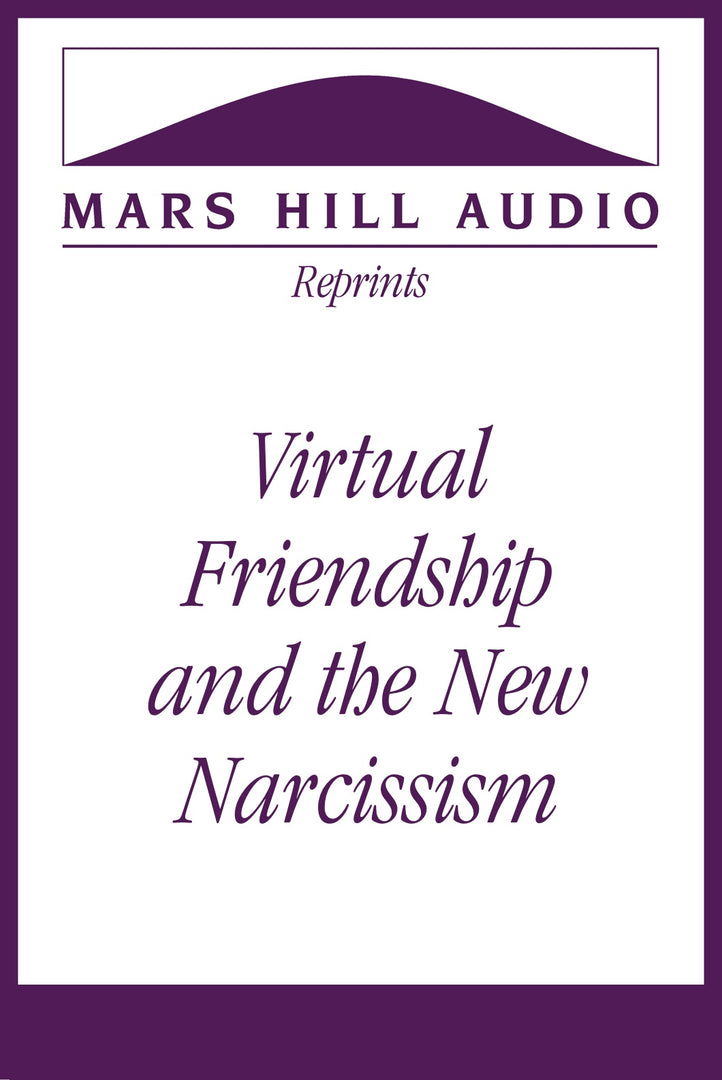
Social networking sites — in widespread use only since 2002 — are changing the shape of relationships for millions of Americans. But how are those changes affecting our understanding and experience of friendship and our sense of personal identity? What happens in personal and social life when we are increasingly connected by weak (and conveniently abandoned) ties? Citing numerous studies by social scientists, Christine Rosen asks: “Does this technology, with its constant demands to collect (friends and status), and perform (by marketing ourselves), in some ways undermine our ability to attain what it promises—a surer sense of who we are and where we belong?”
This article was originally published in The New Atlantis, Summer 2007. Read by Ken Myers. 50 minutes.
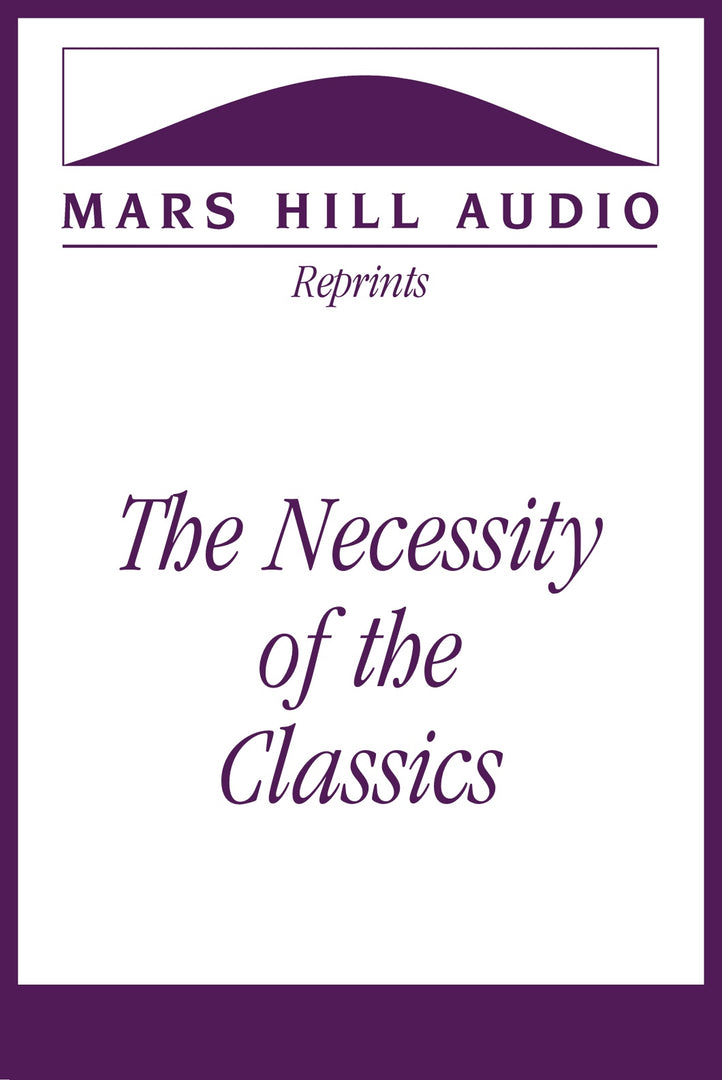
The classics are, argues Louise Cowan, “the primary curricular need of our time.” The classics are poetic in the root sense of the word: they are a form of making (poesis), based on mimesis, “the envisioning, or imagining, of fictional analogies, a kind of knowing different from philosophy or history and yet occupying an irreplaceable position in the quest for wisdom.” Cowan (a recipient of the National Humanities Medal) insists that what we label the classics “have become classics because they elicit greatness of soul,” and that such aspiration can only be informed by such works.
This article was originally published in The Intercollegiate Review, Fall 2001. Read by Ken Myers. 35 minutes.
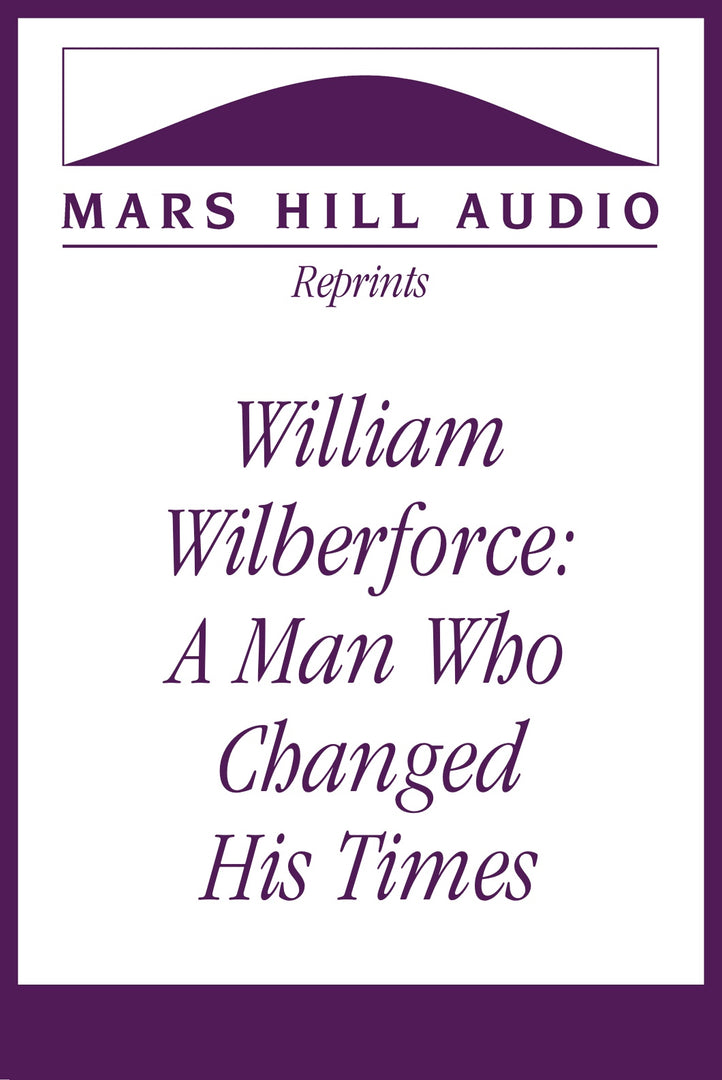
“God Almighty has set before me two great objects: the suppression of the Slave Trade and the reformation of manners.” William Wilberforce, a young parliamentarian, recorded these audacious ambitions in his diary on October 28, 1787. Forty-six years later and three days before his death, slavery was abolished throughout the entire British empire. Over the course of these years he went from being one of the most vilified men in Europe to one of the most loved and revered in the world. This biographical account of Wilberforce's life and work was written by John Pollock, and is introduced by J. Douglas Holladay.
This article was originally published as a Trinity Forum Reading,1996. Read by Ken Myers. 50 minutes.
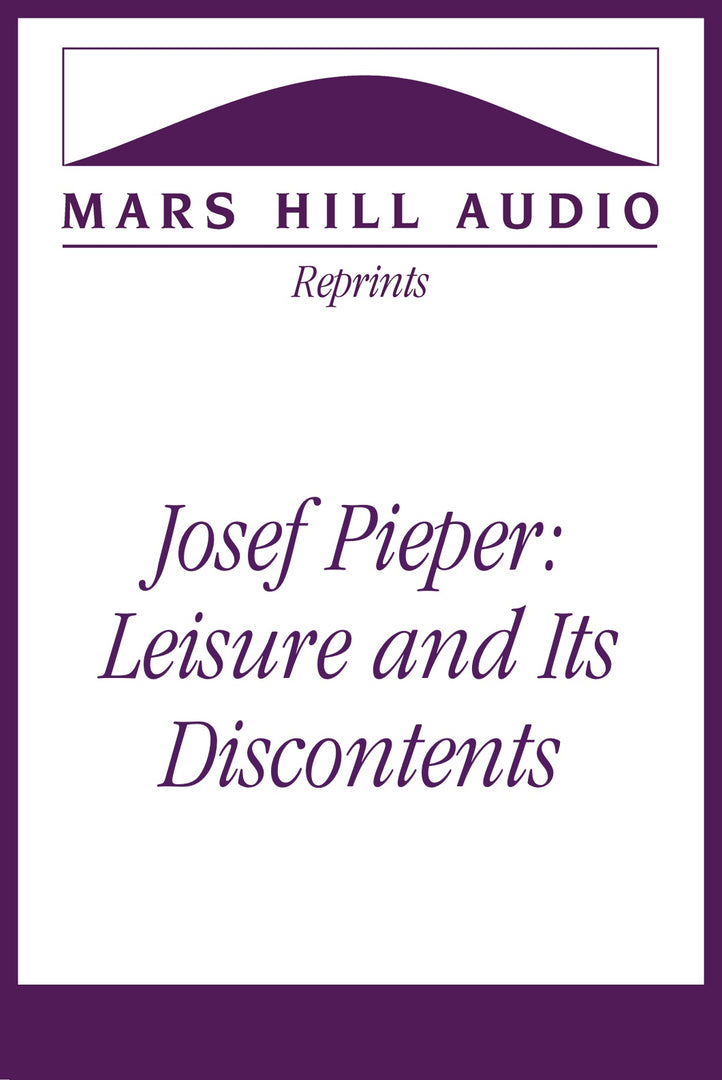
Long before Alasdair MacIntyre or Stanley Hauerwas were reminding us of the significance of historic teaching about virtue, Josef Pieper (1904-1997) was writing confidently about virtue and the virtues. Pieper is best known today for his 1952 book, Leisure, the Basis of Culture. When the book was published, The New York Times enthused “Pieper’s message for us is plain. . . . The idolatry of the machine, the worship of mindless know-how, the infantile cult of youth and the common mind — all this points to our peculiar leadership in the drift toward the slave society. . . . Pieper’s profound insights are impressive and even formidable.” While the Times may not be quite as excited about Pieper today, we’re pleased to present a primer on Pieper’s ideas in this Audio Reprint: “Josef Pieper: Leisure and Its Discontents.” This 1999 essay by Roger Kimball introduces listeners to Pieper’s arguments about the nature of leisure, which are claims about the nature of philosophy and of human well-being. The article was originally published in The New Criterion, where Roger Kimball is editor and publisher.
This article was originally published in The New Criterion, January 1999. Read by Ken Myers. 34 minutes.
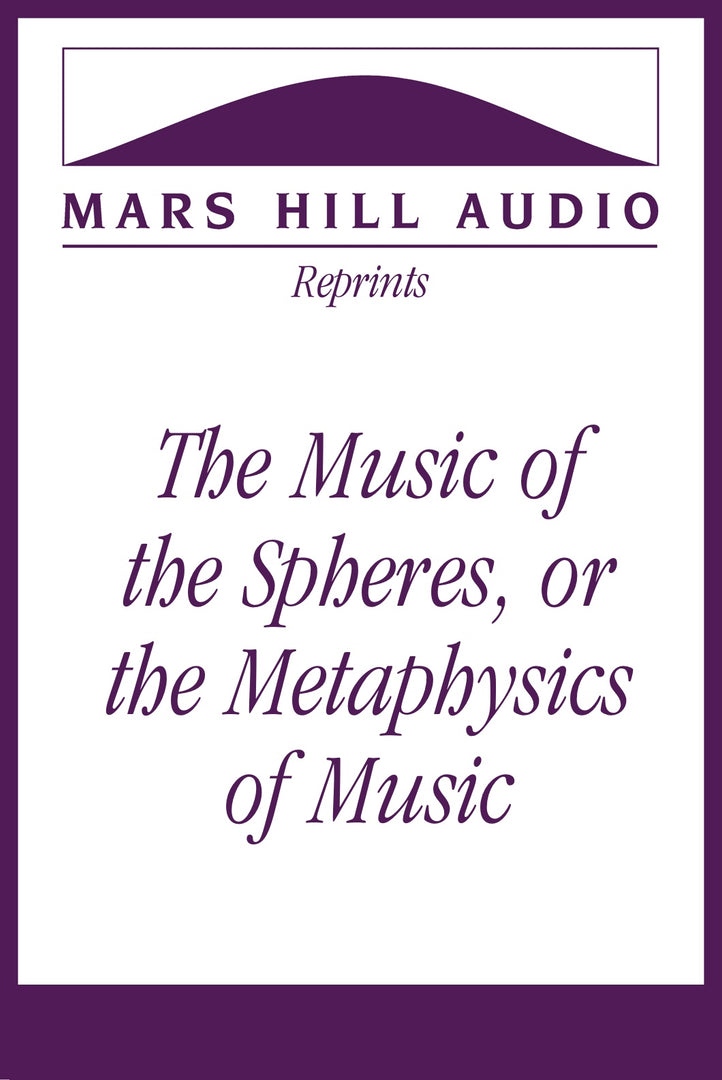
For 2,500 years in the West, music was understood as a work of discovery, as an expression of something present in the structure of the cosmos. Despite changes in musical styles, the ways composers and musicians arranged melody, harmony, and rhythm were assumed to be expressive of some objective reality in the nature of things. As Robert R. Reilly summarizes this view, “Music was number made audible. Music was man's participation in the harmony of the universe.” In the twentieth century, that view was abandoned by courageous pioneers of the avant-garde, and “musical art was reduced to the arbitrary manipulation of fragments of sound.” In this essay, Robert R. Reilly contrasts these two sets of assumptions about music, and introduces two twentieth-century composers who rejected the metaphysics of chaos in their compositions: the Danish composer Vagn Holmboe (1909-1996) and the American John Adams (1947-).
This article was originally published in The Intercollegiate Review, Fall 2001. Read by Ken Myers. 43 minutes.
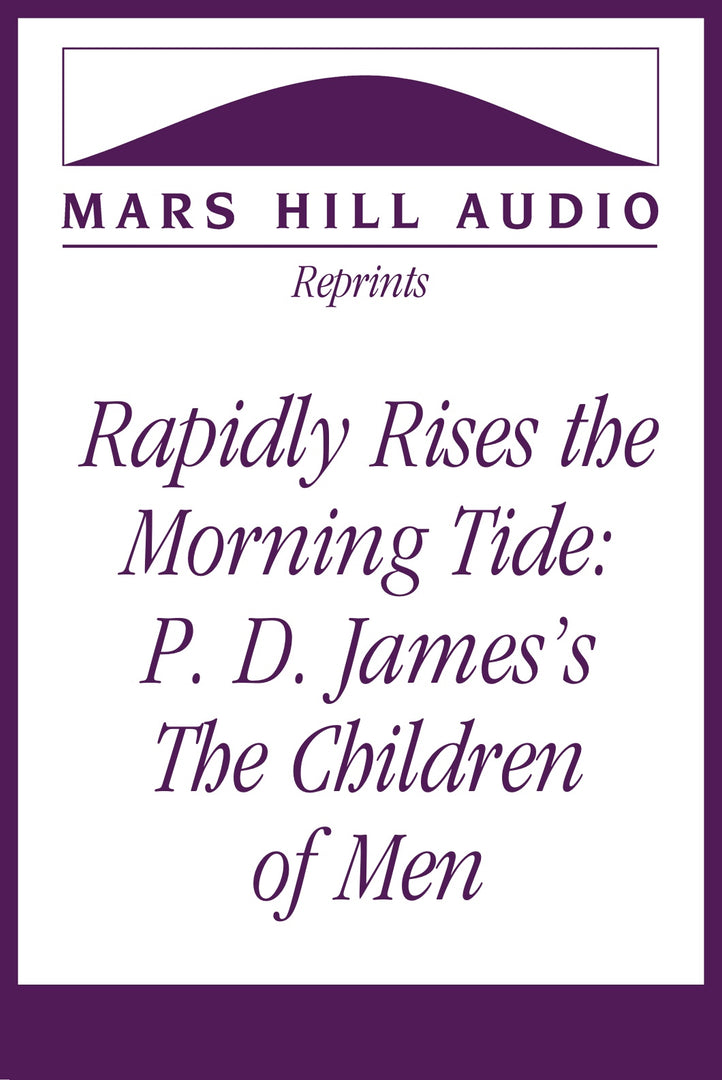
“The key to P. D. James’s fiction, especially her later work, is her Christianity.” So argues Ralph C. Wood, University Professor of Theology and Literature at Baylor University. “She regards our cultural malaise as having theological no less than ethical cause.” In this essay, Wood discusses the way in which the futuristic dystopia of her novel, The Children of Men, reveals much about the West’s modern spiritual confusion and about the possible sources of hope beyond that chaos.
This article was originally published in Theology Today, vol. 51, no. 20 (July 1994). Read by Ken Myers. 39 minutes.
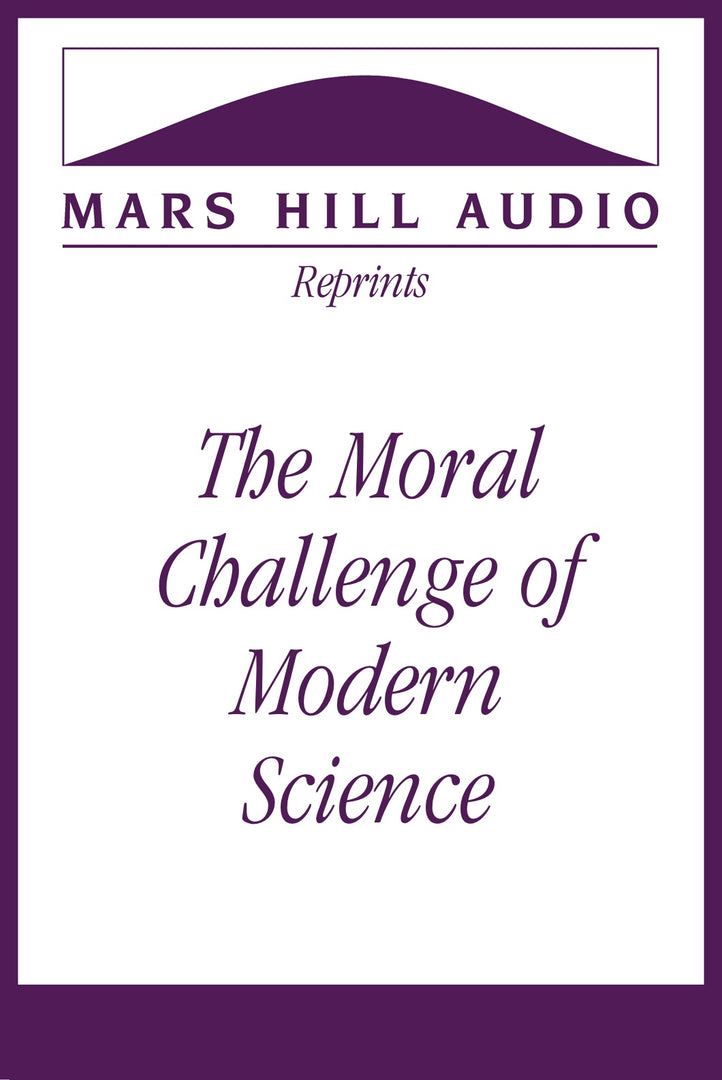
It is commonly assumed that science is a morally neutral set of practices which may be used for good or bad purposes. But Yuval Levin, a fellow at the Ethics and Public Policy Center, insists that science has always been “a profoundly moral enterprise, aimed at improving the condition of the human race, relieving suffering, enhancing health, and enriching life.” Because this moral dynamic is so deeply assumed, our society finds it difficult to assess how we ought to use science when the improvement of health comes into conflict with other social goods. In this article, Levin calls for a more deliberate awareness of how science shapes how we ask and answer moral questions together.
This article was originally published in The New Atlantis, Fall 2006. Read by Ken Myers. 44 minutes.
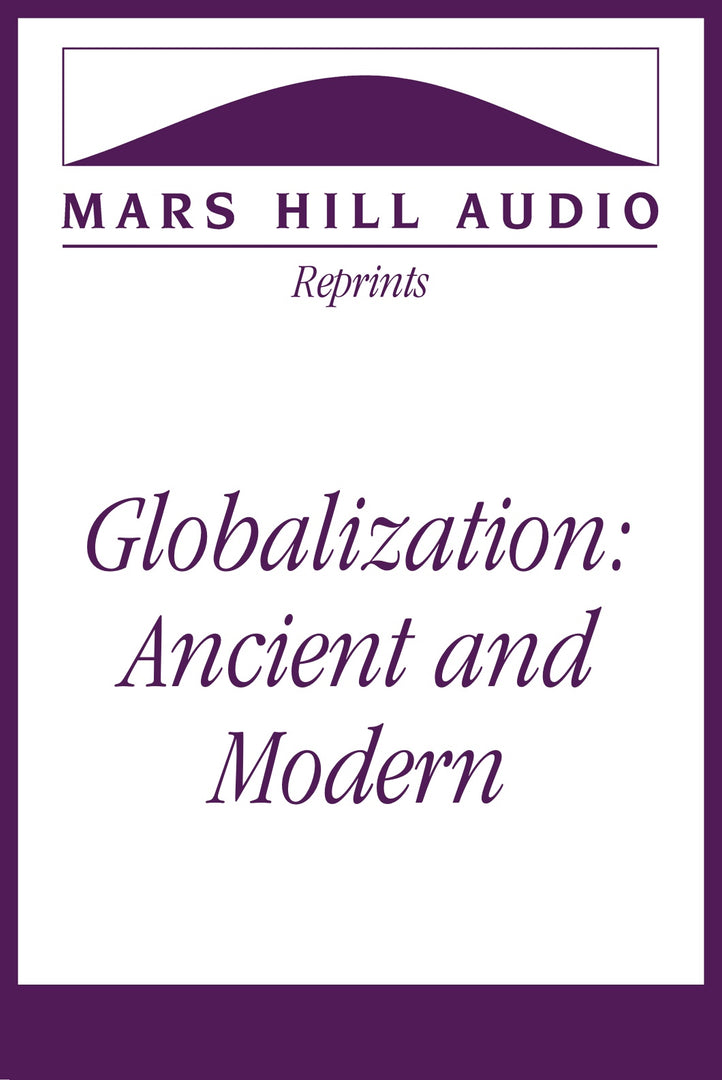
Beginning with the refreshing observation of the sheer ugliness of the word “globalization” (“an adjective, converted into a barbaric verb, then forced into service as a still more barbaric noun”), Joshua Hochschild observes that this misbegotten word labels a poorly defined concept. Despite its vagueness, it “suggests a trend toward increased economic and political interdependence, which at once fosters and is fostered by cultural homogenization.” Hochschild goes on to examine the effects of this trend on local communities and insists that any effort to evaluate globalization requires a return to a “political teleology,” reflection on the ends of politics given the ends of human being.
This article was originally published in The Intercollegiate Review, Spring 2006. Read by Ken Myers. 36 Minutes.
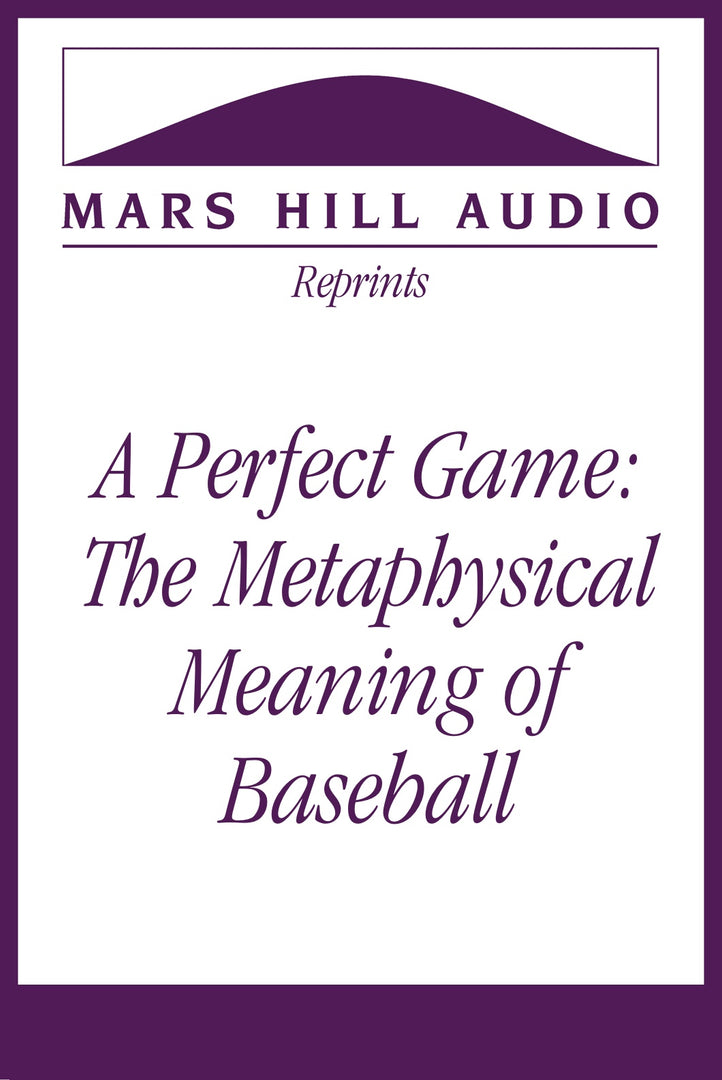
In this playful article from First Things, theologian David Bentley Hart muses on what is arguably America’s greatest contribution to civilization: baseball. Baseball, as Hart would have it, is the Platonic ideal of sports, “a game utterly saturated by infinity,” a game not contrived by our own artifice, but a discovery long kept secret in the dark mysteries of Reality. Contrary to what Hart disparagingly dubs “the oblong game” — the spatial and temporal confines of which are “pitilessly finite” — baseball in its shape and motion stretches towards endless vistas, unfolding organically according to its own narrative and inner logic while at the same time striving to complete the most perfect of shapes, the circle.
This article was originally published in First Things, August 2010. Read by Ken Myers. 27 minutes.
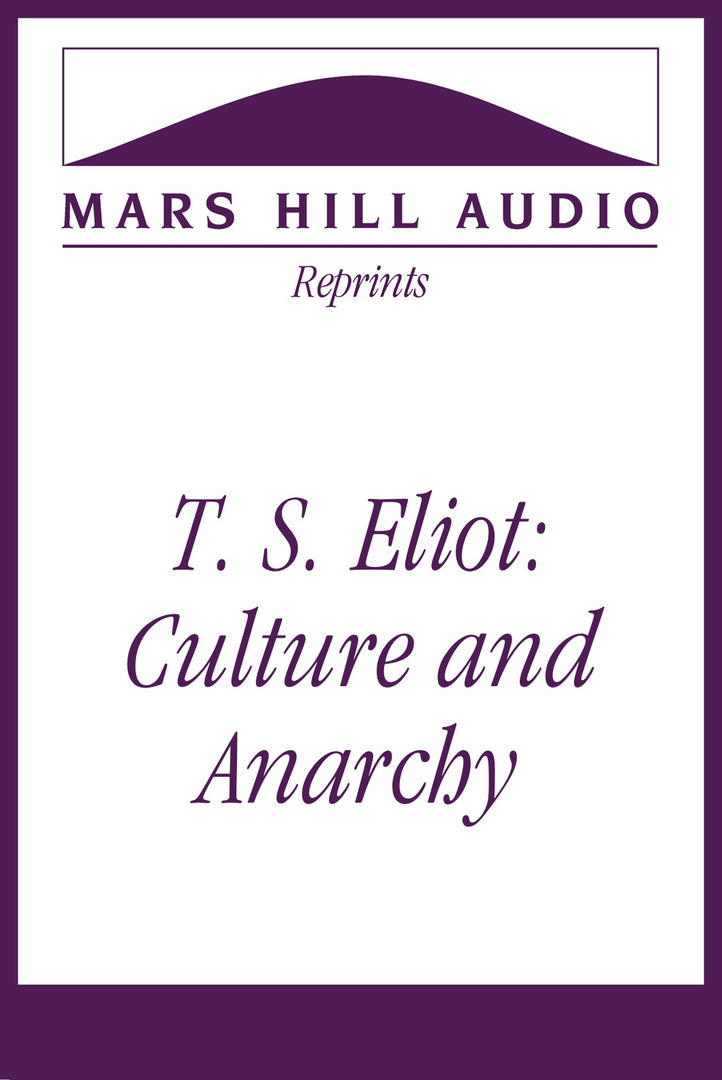
In this essay, James Matthew Wilson examines T. S. Eliot’s cultural conservatism and religious conversion in light of his intellectual and familial influences. Wilson shows that throughout his life, Eliot grappled with the weaknesses of cultural theories that substituted art for religion, such as those proposed by Matthew Arnold and Eliot’s Harvard professors Irving Babbitt and George Santayana. Rather than filling the vacuum left by religious disbelief, the substitution of “civil religion” or “culture” for true religious faith merely confused and distracted modern man from what was at heart a theological and religious depletion. Contrary to appearances, Wilson argues that Eliot as the young modernist poet remained consistent with Eliot the cultural critic and Eliot the Christian. Despite Eliot’s radical reputation, through his poetry, one sees a working-out of Eliot’s thinking on the role of poetry and culture in light of modern man’s condition and a definite metaphysical account of reality.
Portions of this article were originally published on The Imaginative Conservative website. Read by Ken Myers. 80 minutes.
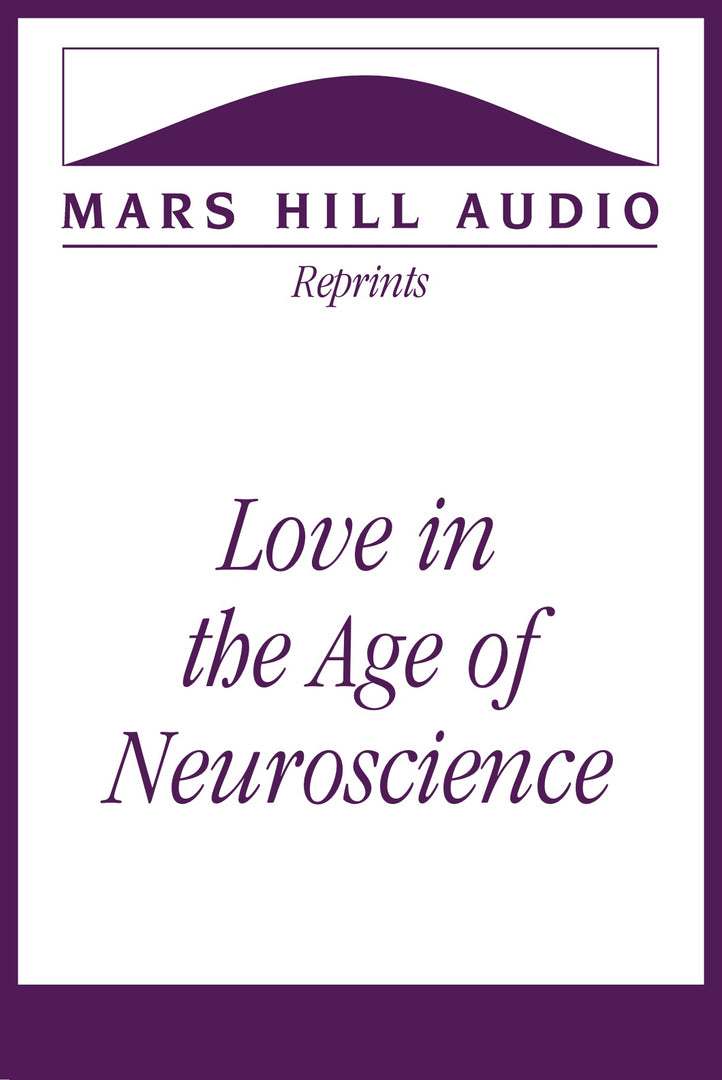
When Tom Wolfe’s novel, I Am Charlotte Simmons, was originally published in 2004, most of the reviews concentrated on the story’s sexual escapades. The book was received by social conservatives as an indictment of collegiate promiscuity and dismissed by progressives as a tired and embarrassing display of peephole prurience by a once-vital writer now in his grumpy 70s. Mickey Craig and Jon Fennell argue that sexual confusion is simply a symptom of a larger crisis prominently explored in the book. “The novel invites us to ask: Is love possible in the age of neuroscience? Or have we unmasked human beings only to discover that love is an illusion?”
This article was originally published in The New Atlantis, Fall 2005. Read by Ken Myers. 38 minutes.
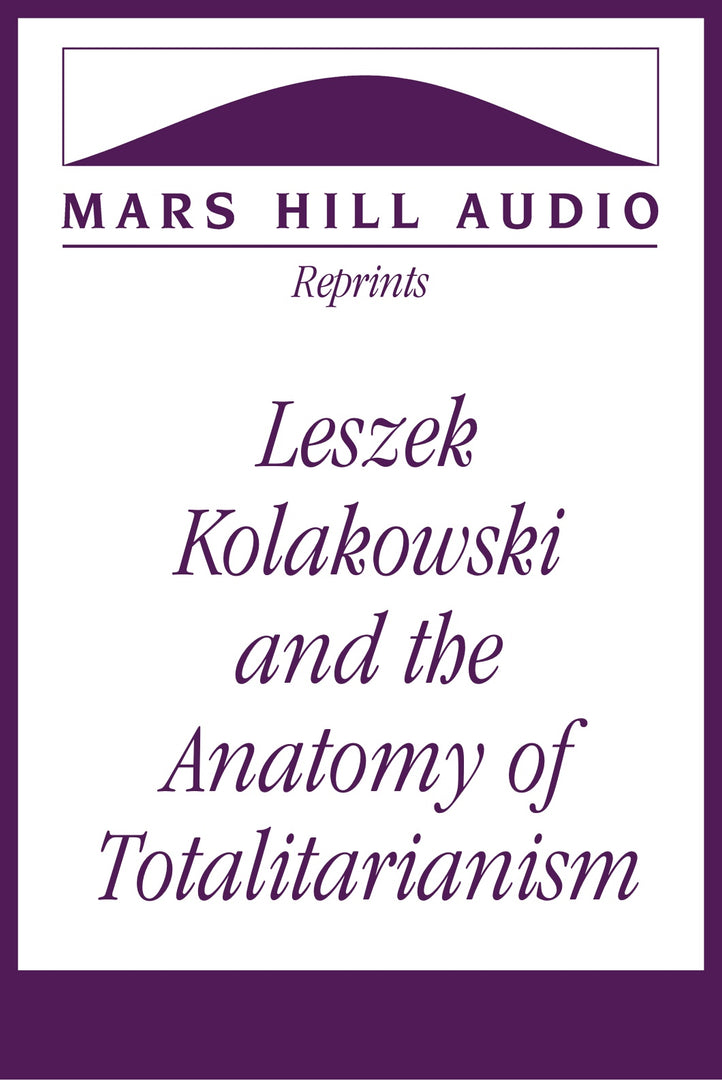
Born in 1927 in Poland, Leszek Kolakowski grew out of his youthful Stalinism to become one of the most penetrating critics of Marxism. In his masterful three-volume Main Currents of Marxism, he concluded: “The self-deification of mankind, to which Marxism gave philosophical expression, has ended in the same way as all such attempts, whether individual or collective: it has revealed itself as the farcical aspect of human bondage.” Kolakowski’s diagnosis of the spiritual crisis of modernity goes far beyond his critique of Marxism; in a variety of books, essays, and public addresses, he regularly returned to the problem of modern culture’s denial of the sacred. This essay by Roger Kimball, editor of The New Criterion, was written on the occasion of the release of a new edition of Main Currents of Marxism, and sets the arguments in that book in the wider context of Kolakowski’s other work.
This article was originally published in The New Criterion, June 2005. Read by Ken Myers. 35 minutes.
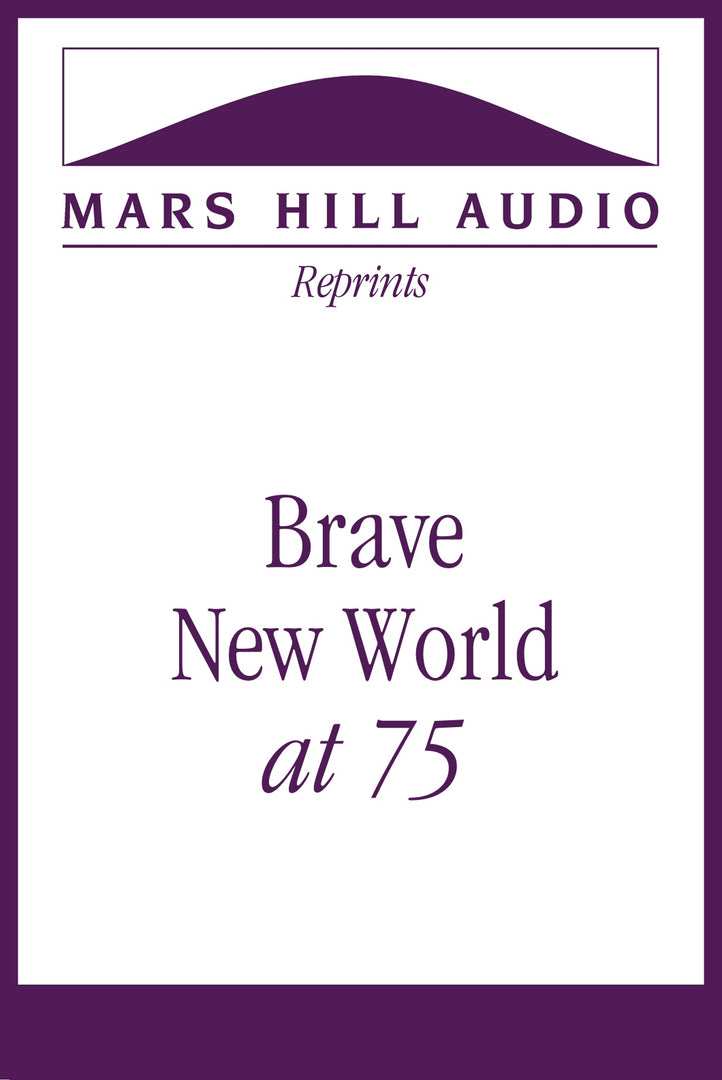
“It is easy to imagine that we see the shadows of our society in Huxley’s vision of the future. But could it be that our insistence on seeing Huxley’s book as an exceedingly successful prophecy actually prevents us from recognizing its real insight? Is there a way for us to understand the book free of the great distorting influence of our own times?” That's what Caitrin Nicol accomplishes in this essay which combines a survey of contemporary reviews of Aldous Huxley’s Brave New World with some thoughtful reflections on happiness and freedom.
This article was originally published in The New Atlantis, Spring 2007. Read by Ken Myers. 44 minutes.
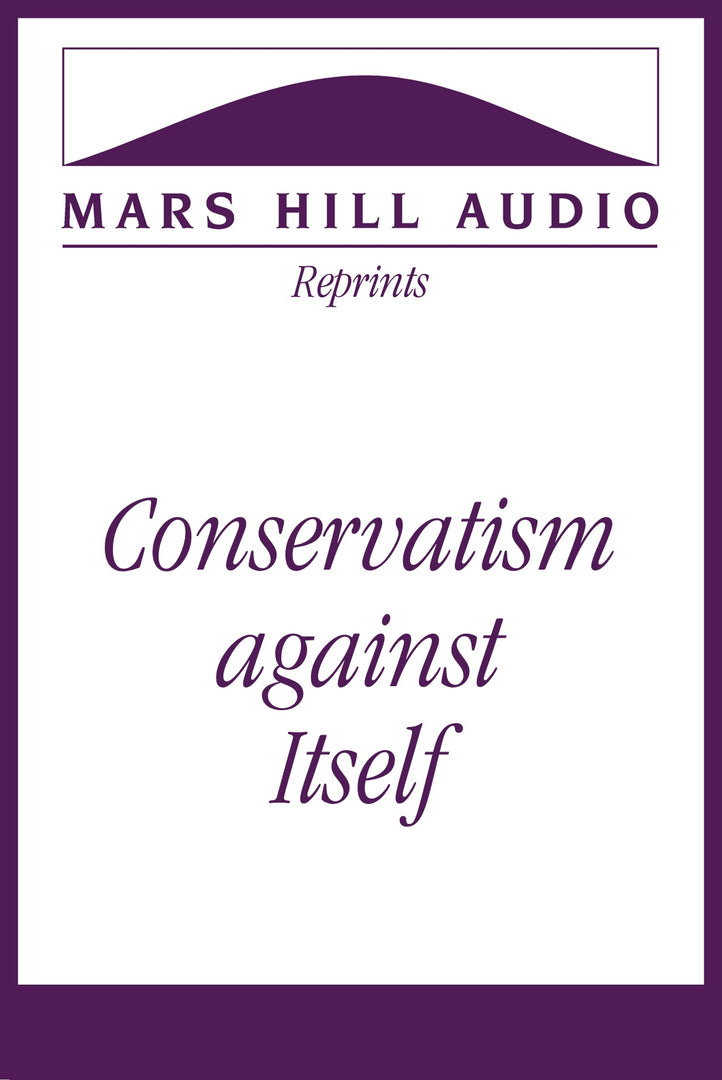
In this early article from First Things, historian Christopher Lasch poses the question of whether cultural conservatism is compatible with capitalism. If, as Lasch argues, conservatism is defined by a respect for limits — that human freedom has constraints imposed upon it by nature, history, human fallibility, and “original sin” — then the unrelenting and insatiable quest for ever-increasing standards of comfort that capitalism encourages is completely at odds with conservative values. Despite nineteenth-century attempts to bolster the family as the primary means of curbing the large-scale transfer of “private vices” to “public virtues” implied in liberal economic theory, the effects of twentieth-century capitalism have only underscored how vulnerable the family is when the integrity of its surrounding local institutions is destroyed. Also included in this article is an account of lower-middle class versus upper-middle class cultural values as well as the alternative — though now largely unheard of — economic approaches to liberal capitalism advanced by the distributists and syndicalists.
This article was originally published in First Things, April 1990. Read by Ken Myers. 42 minutes.
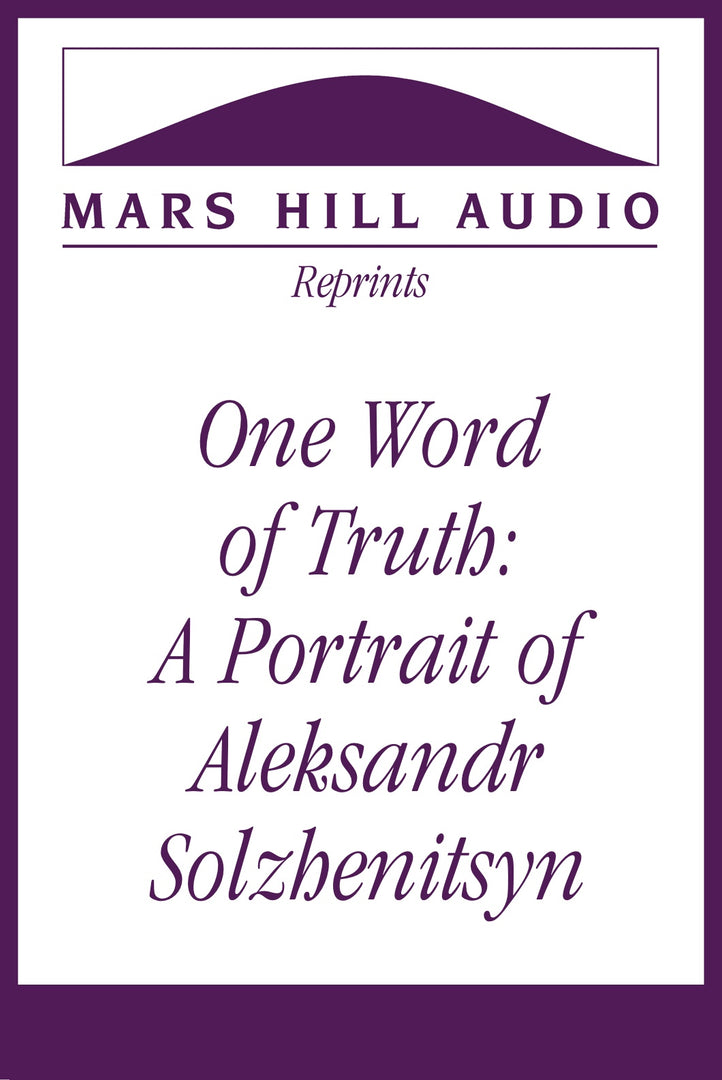
(a Trinity Forum Reading, 1997)
In 1989, David Aikman, then a journalist with Time magazine, was granted the first major interview Solzhenitsyn had given an American news organization for years. In this essay, Aikman offers an engaging and lively account of the dramatic and sobering events of Solzhenitsyn's life: from his early years as a Communist, to the beginnings of his literary efforts and his subsequent imprisonment, to his exile and life in the West, to his return to Russia in the 1990s. A portrait emerges of a courageous man devoted to the battle for truth in the context of the distinctive disorders of modern, post-Christian culture. This Reprint is read by the author, and includes a foreword written and read by Os Guinness on the contemporary crisis of truth in the West. 107 minutes.
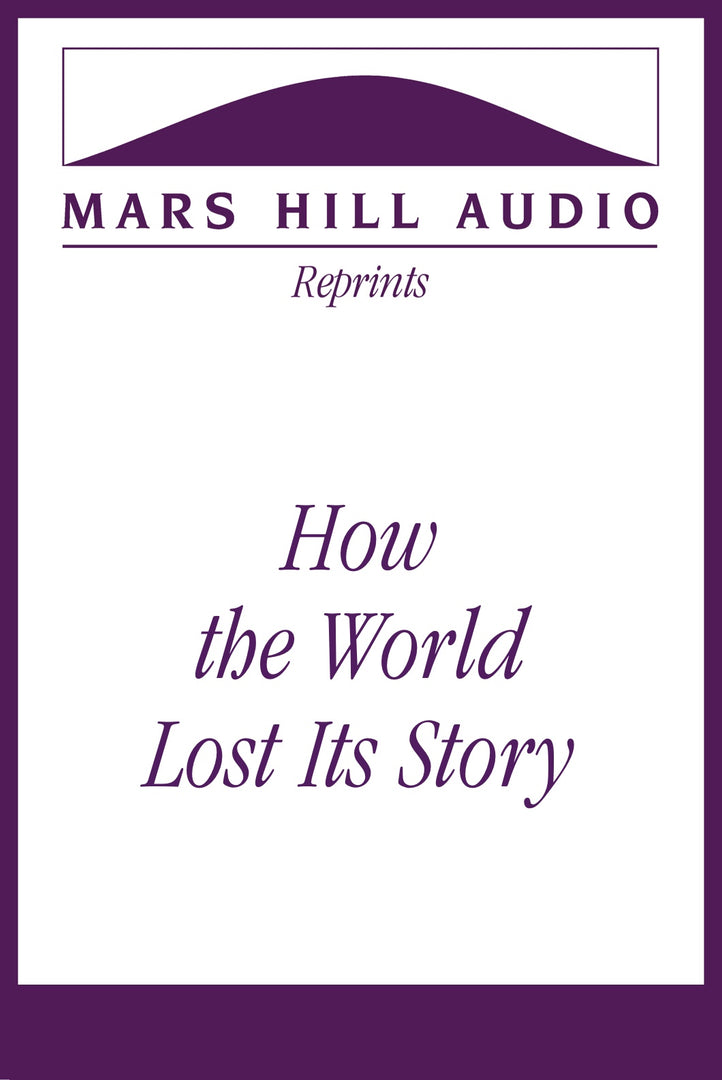
In this article, theologian Robert W. Jenson describes how a postmodern world is characterized by the loss of a conviction that we inhabit a “narratable world” that exists coherently outside of ourselves. Although modernity — as opposed to postmodernity — presupposed in its arts and philosophy this narratable world, it did so while at the same time discarding the Judeo-Christian framework that enabled such a supposition in the first place. Increasingly, as the arts prefigured and now as the general culture at large displays, the experience of and confidence in such a coherent narrative has broken down into fragments. How then is the Church to respond to a world that has lost its story? In Jenson's words: “If the church does not find her hearers antecedently inhabiting a narratable world, then the church must herself be that world.”
This article was originally published in First Things, October 1993. Read by Ken Myers. 40 minutes.
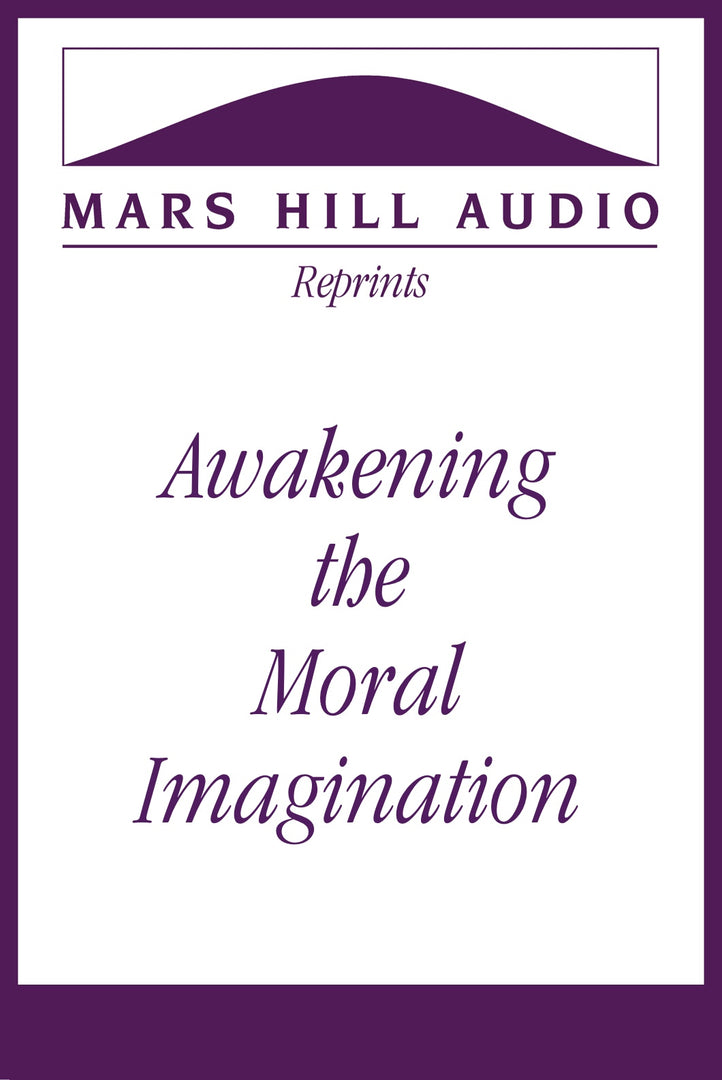
In his article “Awakening the Moral Imagination,” Vigen Guroian discusses the role that fairy tales plays in moral formation. The multi-dimensional world of the fairy tale has the capacity to depict a compelling vision of what is good and evil without reducing moral formation to mere instruction and the moral imagination to advanced utilitarian reasoning skills. In this essay, Guroian also contrasts the features of character and virtue with those of what is more modernly called “values,” and examines how these different approaches to moral consideration reflect conflicting ways of understanding self-formation.
This article was originally published in The Intercollegiate Review, Fall 1996. Read by Ken Myers. 47 minutes.
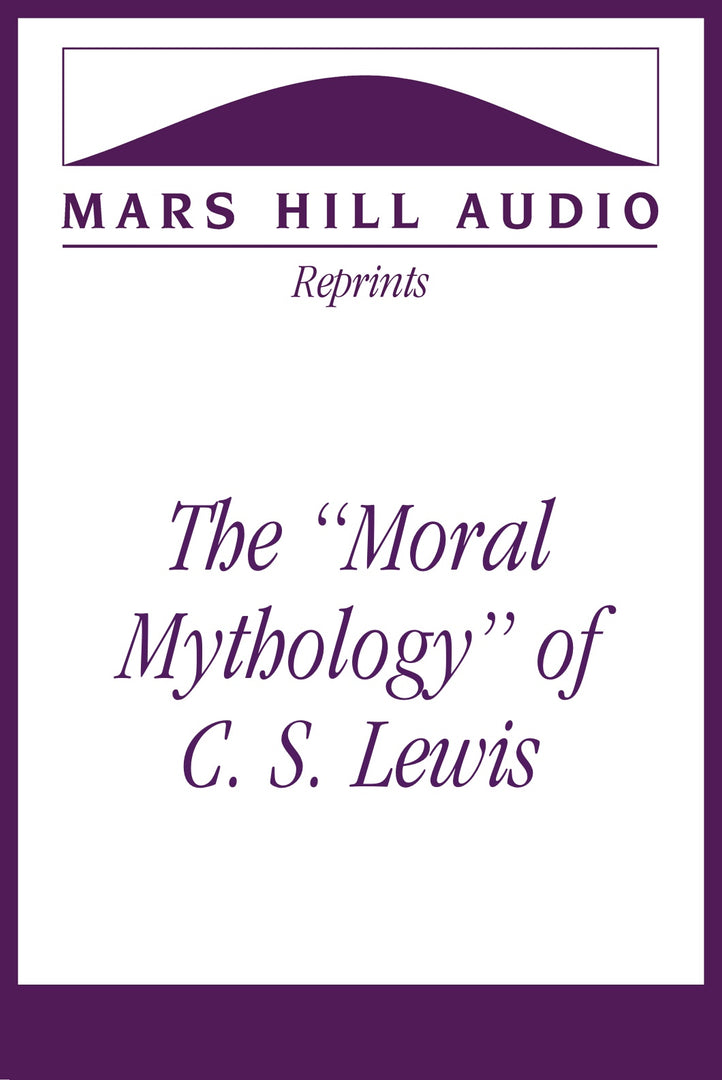
In this essay, literary scholar Thomas Howard describes C. S. Lewis’s fictional works in terms of a mythological re-presentation of the Christian and pre-modern moral and cosmic vision. The greatest apologetic challenge for Lewis was not so much responding to arguments, as it was persuading an audience whose horizon had been radically altered and shaped by modernity that that which was esteemed and revered in the pre-modern imagination was in fact desirable. The modern imagination seeks meaning in self-liberation, in the quest, in self-authenticating experimentation. By contrast, the world that Lewis presents is that of a finely choreographed dance, one in which perfect freedom is achieved when the individual listens to the music that precedes him and after mastering the steps joins the rest of the cosmos in a dance that he did not create, but which was nevertheless made for him.
This article was originally published in Modern Age, Fall 1978. Read by Ken Myers. 41 minutes.
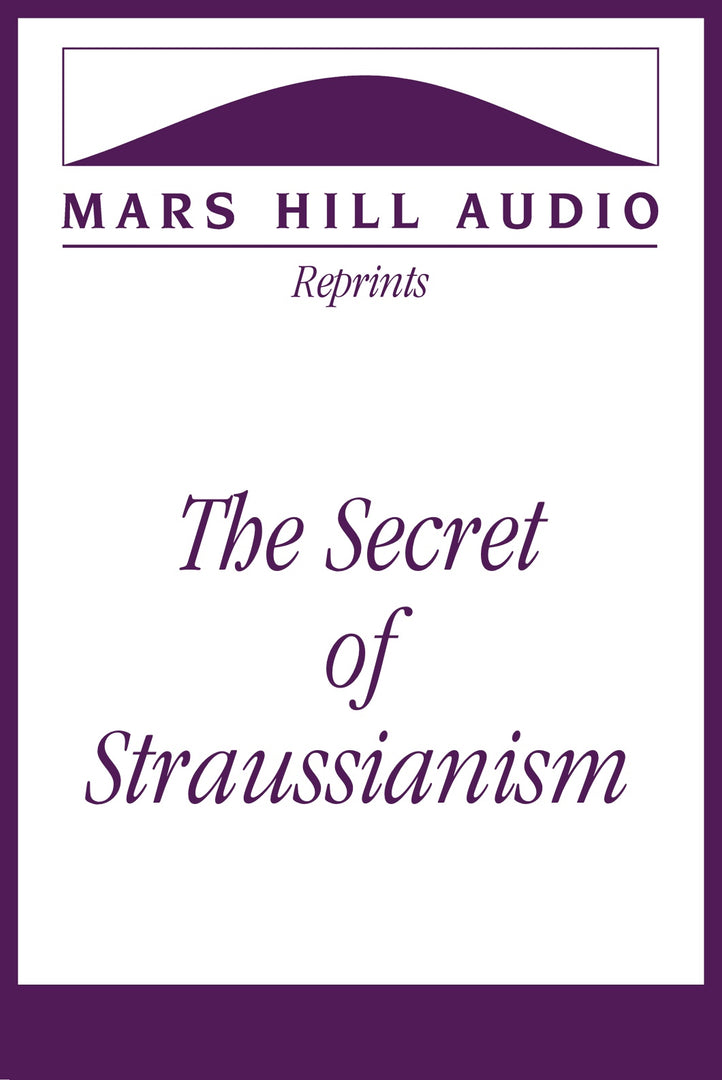
Leo Strauss (1899-1973) was one of the most influential political philosophers of the twentieth century. In this essay, Richard Sherlock explores the significance of Strauss’s methodology, focusing on how he understood the communication of ideas in classical and modern thought about political order. Strauss’s deep, insightful readings and profound respect for the writers of seminal works manifested a powerful apologetic for the idea of “classic natural right,” even as his intellectual esotericism masked a critical gap in his political philosophy.
This article was originally published in Modern Age, Summer 2006. Read by Ken Myers. 36 minutes.
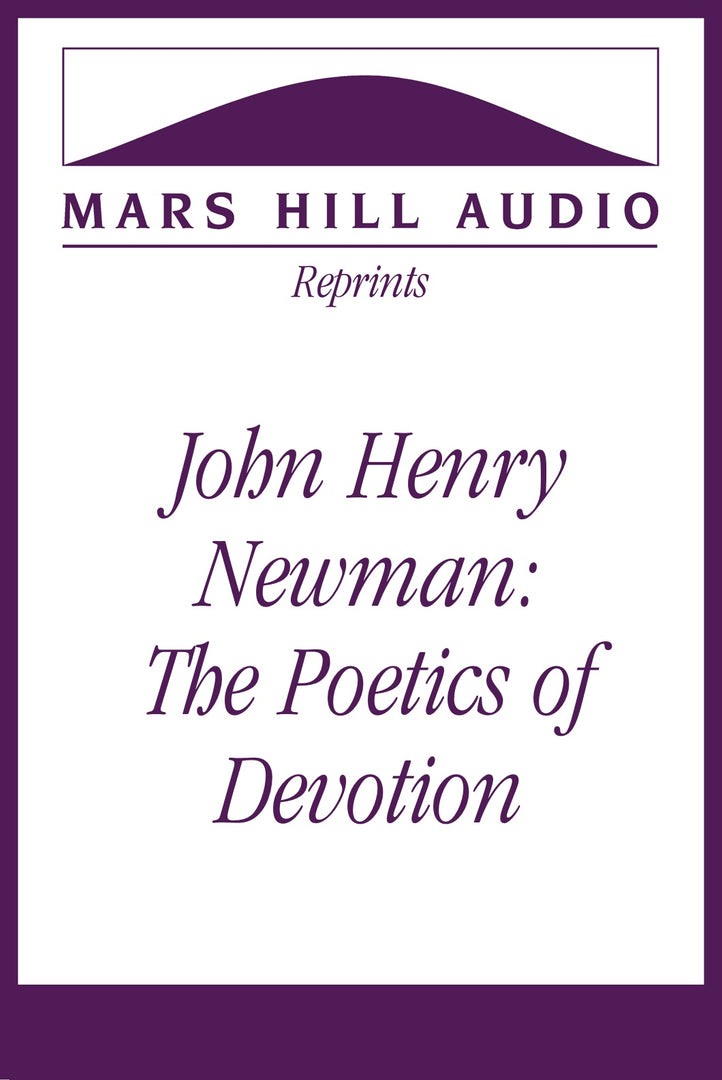
In this essay, Stephen Gurney shows how in his sermons, Newman draws the listener in through the craft and beauty of his prose — and, for those who heard his sermons, Newman’s entrancing voice — while nonetheless removing himself from the spotlight in order to convey his listeners to the True Presence of Christ. With a delicate and sophisticated balance of subjective devotion and sacramental ecclesiology, Newman’s sermons invite the whole person to participate in a spiritual journey that ends in an encounter with the Divine.
This article was originally published in Modern Age, Fall 2000. Read by Ken Myers. 51 minutes.

Writing in The American Scholar in 1991, critic Bruce Bawer claimed that Richard Wilbur is “the outstanding contemporary instance of the type of poet who writes in strict forms about traditional themes, and whose poems—making, as they do, frequent, appropriate, and instructive use of meter, rhyme, imagery, alliteration, assonance, and even the occasional classical allusion—could serve as models in a textbook of prosody.” But the attentive (and therefore delighted) reader will take less note of Wilbur’s model practice than of the sense of marveling that saturates his work. As David Lyle Jeffrey observes in his article, “God’s Patient Stet,” the sense of consistency one perceives in Wilbur’s work “emerges not only from his craftsmanship as a poet but from his constancy as an affectionate observer of creation, both Nature and human nature.” Jeffrey’s article focuses on the poems in Wilbur’s 2010 anthology Anterooms, especially those that are more explicitly Biblical or theological in their allusions. David Lyle Jeffrey is Distinguished Professor of Literature and Humanities at Baylor University.
This article was originally published in First Things, July/August 2011. Read by Ken Myers. 25 minutes.
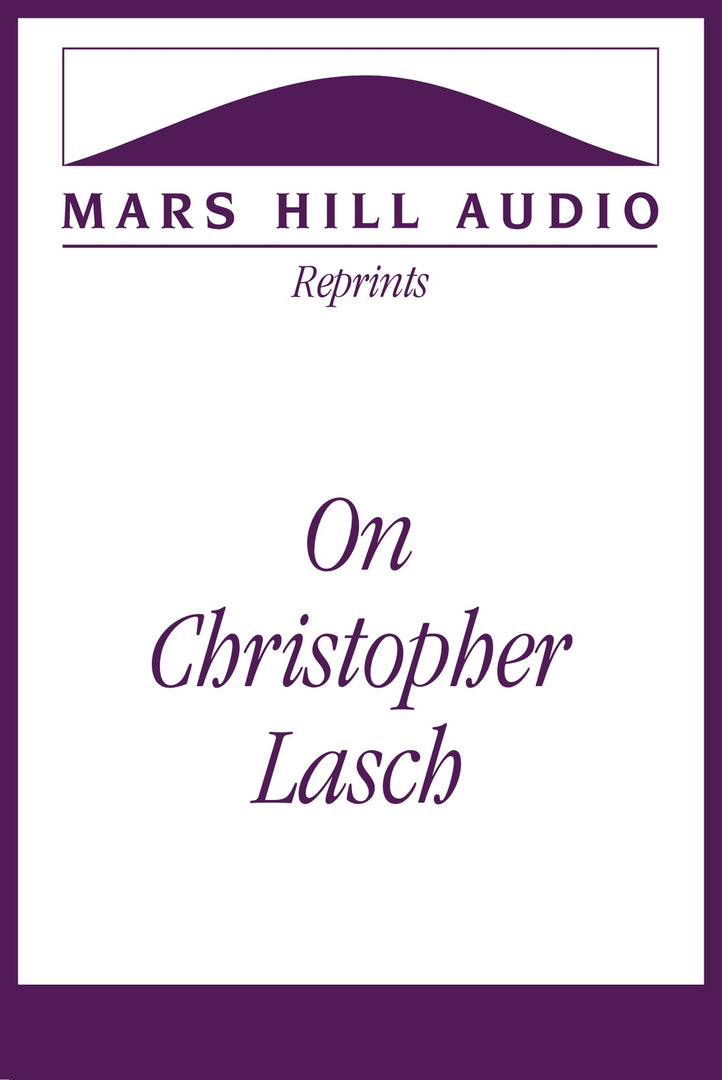
In this biographical sketch, Jeremy Beer describes the intellectual trajectory of cultural historian, Christopher Lasch, whose career spanned from the 1960s through the early 1990s. Beer recounts how, despite growing up in a “militantly secular” home and, throughout his career, sympathetically grappling with the works of Marx and Freud, Christopher Lasch distanced himself from the leftist “radical intellectuals,” whose version of progressivism did not coincide with Lasch’s understanding of a healthy democracy. In his scholarship and criticism, Lasch was concerned about democracy, both as an achievable ideal and as an imperfect reality. He rejected the Left-Right dualism of American politics, arguing that the ostensibly opposing ideologies were merely two sides of the same coin that amounted to the refusal to acknowledge human limitations. Lasch’s diagnosis of the modern, “anxiously narcissistic” self involved a sharp critique of the culture that produced it, namely, a culture that condoned the conquest of nature through scientific, technological, and economic methods without any regard for naturally or institutionally based limits on human freedom.
This article was originally published in Modern Age, Fall 2005. Read by Ken Myers. 55 minutes.
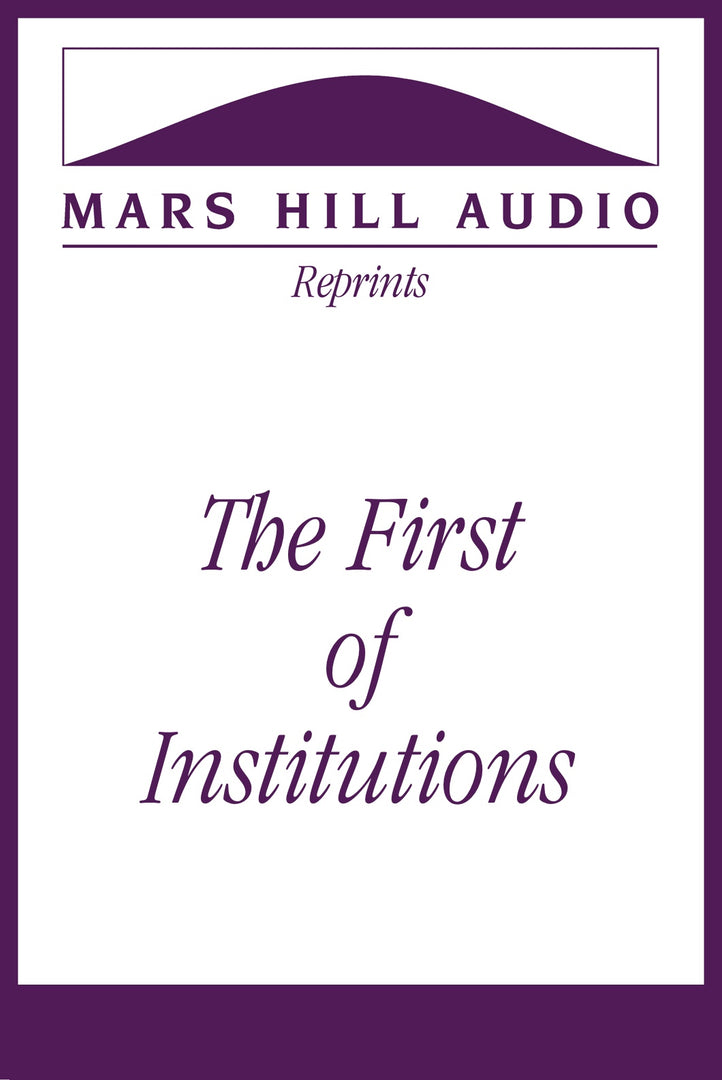
For the Christian to think about questions of sexuality as they arise today, he or she must first think about the biblical and ecclesial teaching of marriage as “an image of what is truly ultimate.” In this Audio Reprint, Gilbert Meilaender argues that notions of sexual fulfillment that ground themselves in self-expression and emotional satisfaction, or in the mutual exchange of love cannot adequately account for the historical, spiritual, communal, and bodily dimensions of sexual union. Although the challenge to establish Christian norms of behavior while avoiding additional conditions for salvation is perennial for the Church, failure to undertake this challenge stimulates a dangerous dualism between body and spirit within the Church itself. By emphasizing that the body is the place of spiritual and moral significance in our lives, Meilaender points out the need for the Church to uphold and enforce normative behaviors of chastity, in order to practice the pastoral role of showing compassion and acceptance with integrity.
This article was originally published in Pro Ecclesia, Vol. VI, No. 4 (1997). Read by Ken Myers. 40 minutes.
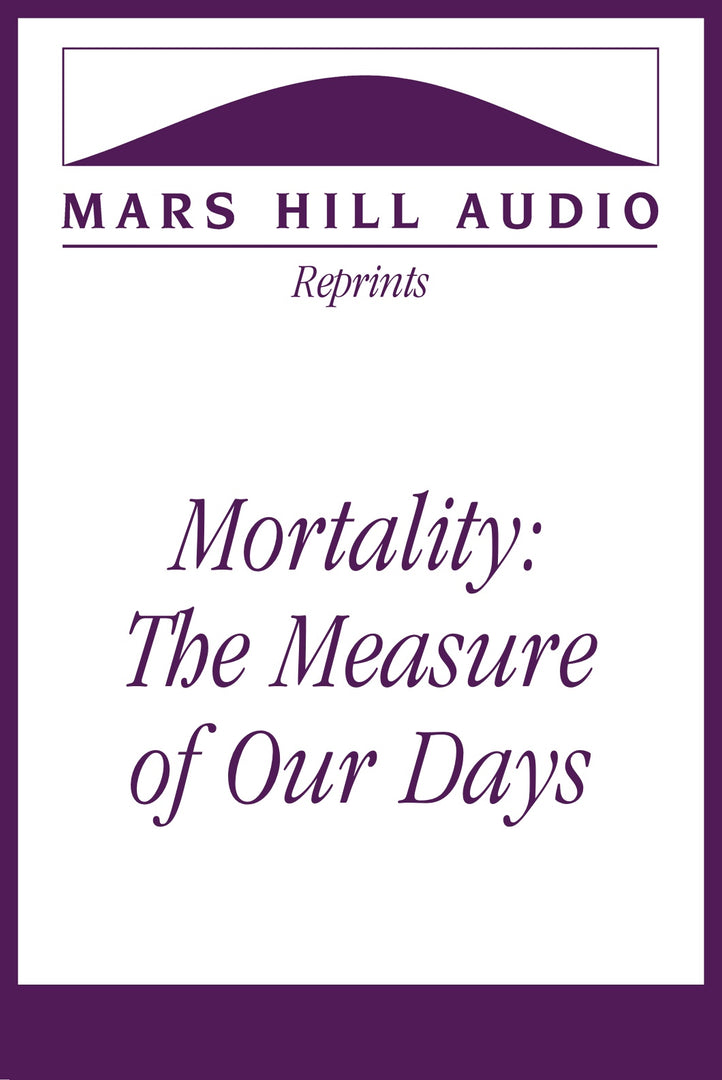
In this Audio Reprint, ethicist Gilbert Meilaender considers the different ways in which we can think about our death, particularly from the paradoxical “simultaneities” of our finite nature and our transcendent desires. We are dual creatures, writes Meilaender, simultaneously bound by nature’s cycles and yet freed from mere finitude by our God-directed ends. To view death solely from one or the other of these realities is to trivialize either our spiritual longings or our historical and physical experiences. Taking his cues from Charlotte’s Web, Bambi, and The Last Battle, Meilaender confronts contemporary inclinations to deny death by placing both death and life within a spiritual framework that enables us to “measure our days.”
This article was originally published in First Things, February 1991. Read by Ken Myers. 51 minutes.
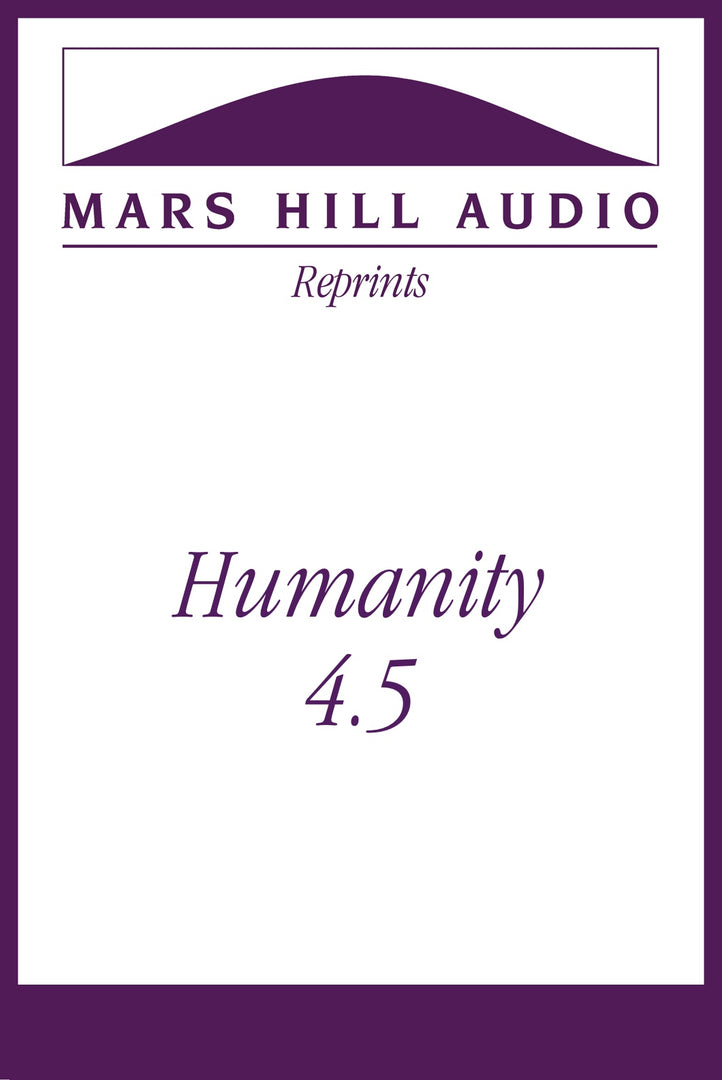
Transhumanism is an attitude toward humanity that views life and consciousness as data and material limitations (particularly the body) as disposable wetware. Through science and technology, transhumanists hope to achieve immortality by surpassing our current bodily limits, thus crossing over to a different type of humanity. While it is tempting to dismiss transhumanism as a fringe science fiction, professor of classical studies, Mark Shiffman, warns that the Cartesian aspirations of transhumanists are becoming more accepted and more common. And this should not come as a surprise, since the agenda to transcend ourselves emerges from a history of thought that reaches as far back as the thirteenth century. In this Audio Reprint, Shiffman repeats a forgotten account of human history in order to help readers identify our own assumptions about humanity and to reexamine our relationship to God and his creation.
This article was originally published in First Things, November 2015. Read by Ken Myers. 45 minutes.
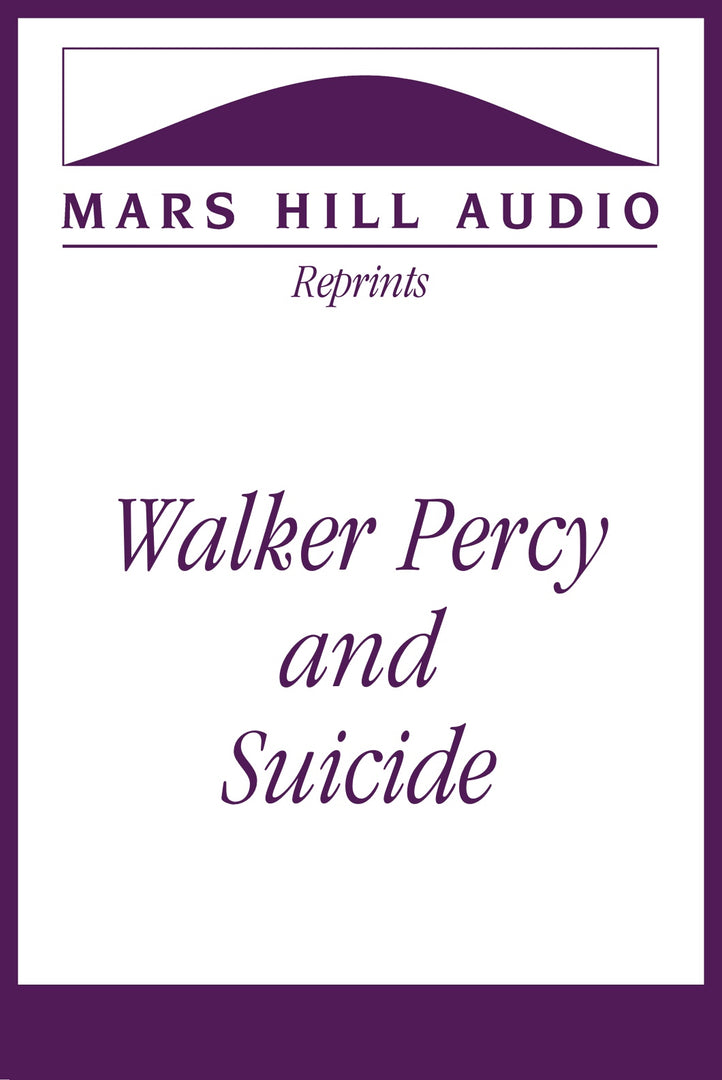
In this article, John Desmond uses the novels of Walker Percy to critique the increasing trend in today’s medical fields and in secular society as a whole to affirm, even if tacitly, that suicide is a decision belonging to each individual as a right. Desmond examines how the influence of existentialist philosophers, Albert Camus and Søren Kierkegaard, informed the theme of suicide in Percy’s novels. As a philosophical novelist, Percy was not merely interested in the narrative effect of suicide, but more deeply wanted to probe how modern man finds himself living a form of “spiritual suicide” or “sickness unto death” (in the words of Kierkegaard). Percy’s critique of modernity was — following Alexis de Tocqueville — a critique of Cartesian dualisms that separated mind from body and man from nature, leading eventually to an existential man isolated both from himself and his neighbor.
This article was originally published in Modern Age, Winter 2005. Read by Ken Myers. 24 minutes.
Since 1993, the Mars Hill Audio Journal has provided thoughtful interviews and commentary to thousands of listeners.
Now you can sign up for a membership and listen to almost everything we’ve produced for over 30 years, as well as many hours of content from Partner organizations.
